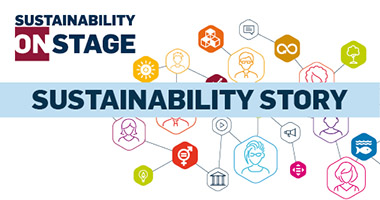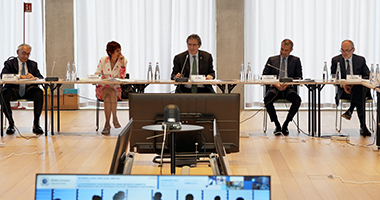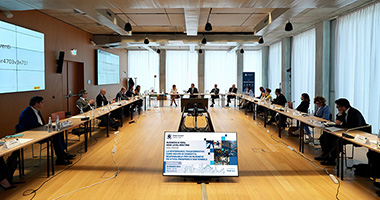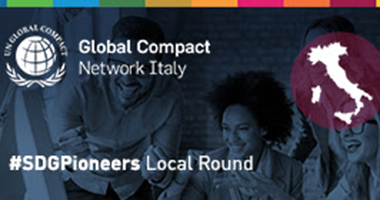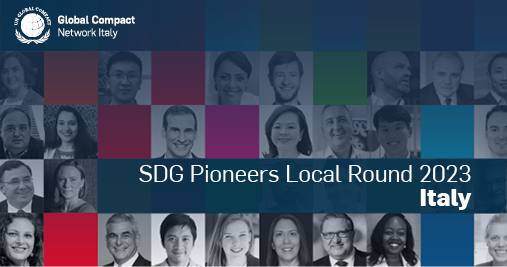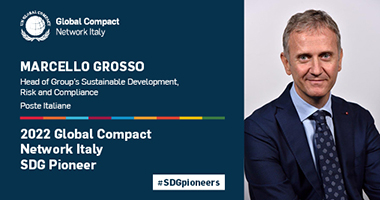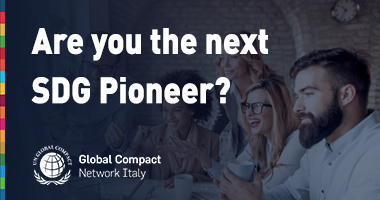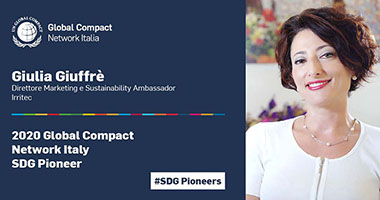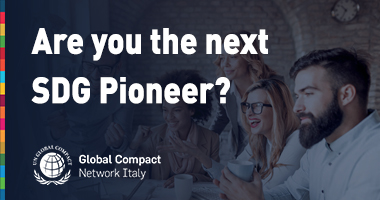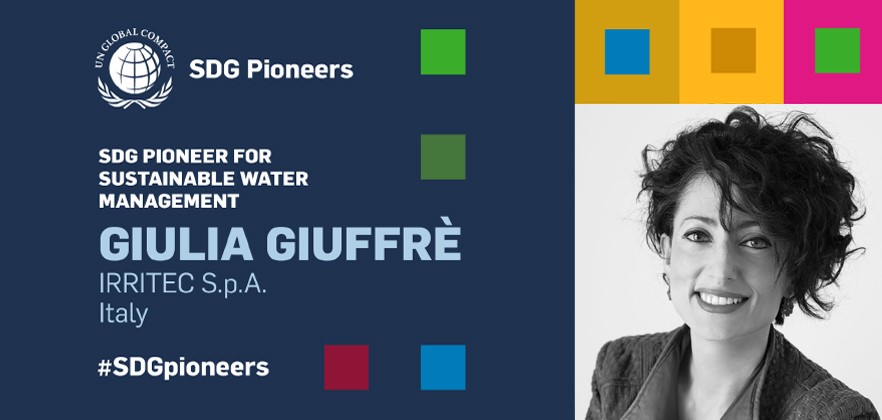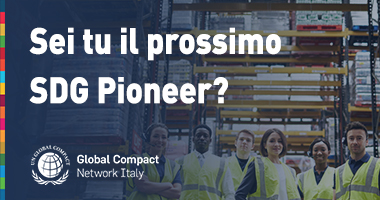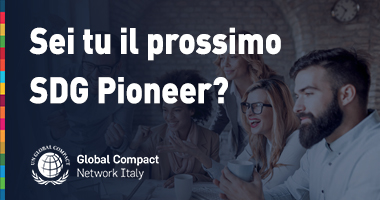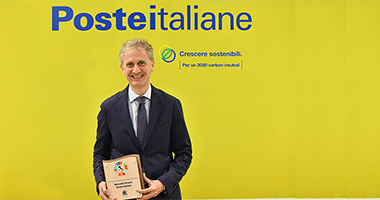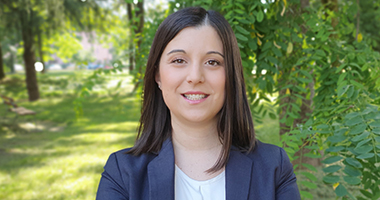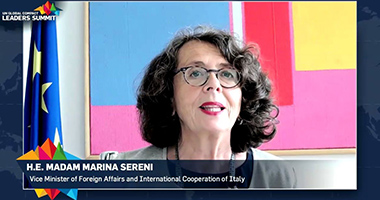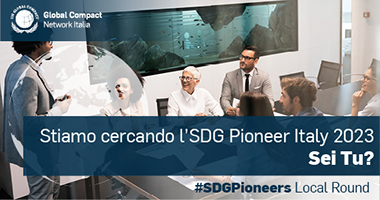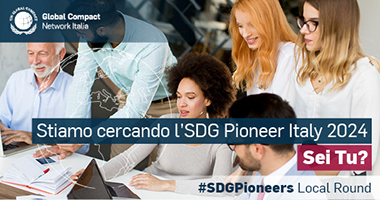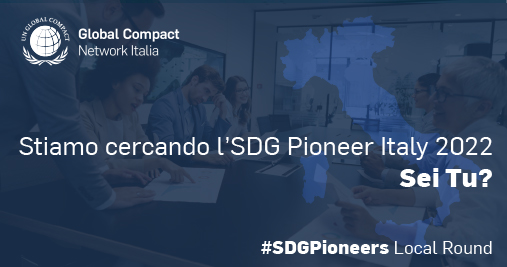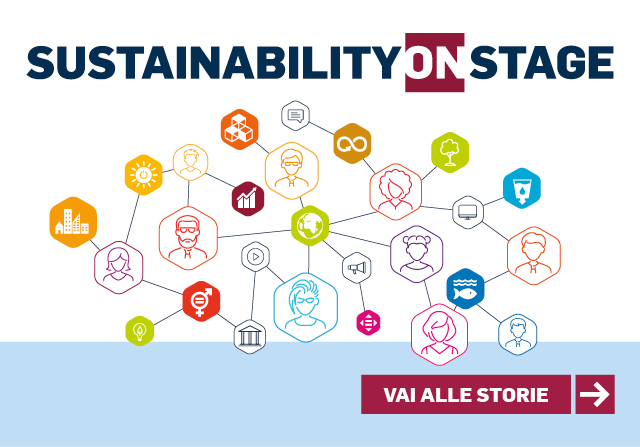Interview with Francesca Martucci – Sustainability Specialist at Pirelli & C.
1. The 2030 Agenda for Sustainable Development, launched by the United Nations in 2015, is now widely recognized as the main framework and guideline for a transformation of economy and society based on the respect of human and labour rights, of the principles of dignity, equality and non-discrimination, and of the environment. As a Sustainability Specialist and passionate about the issues, can you explain to us what - in your opinion - are the real strengths of this tool for promoting and implementing sustainable development?
2015 marked a moment of great change for the world of sustainability. The experience gained with the Millennium Development Goals has led to the involvement of a greater number of players in the definition of the Global Goals, and this choice has proved to be successful. The consultations led to the definition of 17 clear, shared and measurable objectives: the Sustainable Development Goals (SDGs). The publication of the 169 targets underlying the SDGs allowed a greater understanding, providing the addressees with concrete ideas on how to actively contribute to their achievement. Among these, the private sector has been given a key role alongside the Member States since from the definition of the targets. The increased involvement of companies has led to greater visibility of these issues in public events and debates, as well as on social media. This has allowed to reach a wider audience compared to the past, and many people, even individually, have decided to take action and become promoters of the objectives of sustainable development.
2. This year, the SDGs Pioneers competition - promoted and coordinated globally by the United Nations Global Compact - aimed to recognize and enhance the commitment of Young Business Leaders (under 35) to sustainable development. In your opinion, how can a Young Professional contribute to achieving the sustainability objectives of the company in which he/she is involved?
One of the advantages of being a millennial is certainly growing up in a world that attributes a key role to sustainability. I remember when these issues were first approached on the news, with the launch of the Millennium Development Goals, and - although less than today - sustainability was already part of my life. Five years ago, at the end of my studies, I had the opportunity to continue pursuing my interest in these issues within Pirelli, a company in which sustainability is fully integrated into its business strategy. Thanks to this, I have the opportunity to meet with colleagues from different company functions (purchasing, health and safety, governance, human resources...) on a daily basis, working together to the definition of objectives for the sustainable development of the company and knowing that the activities that are implemented also contribute to the achievement of the United Nations’ sustainable development goals.
3. Looking at your work at Pirelli & C., is there a project or activity - on which you have been/are currently engaged and which you think has a particular value or impact - that you would like to talk about?
A very important project which we have been working on for some years now concerns the sustainability of the natural rubber supply chain. Created with the aim of promoting and developing sustainable and responsible sourcing along the entire value chain, it included the publication of the “Sustainable Natural Rubber Policy” in autumn 2017, as well as the related “Implementation Manual” and a multiannual action plan in 2018. All of this was elaborated through a constant multi-stakeholder dialogue involving international NGOs, our main natural rubber suppliers, traders and farmers, automotive customers, multilateral and international organizations. The issues addressed in these documents include the protection of workers and indigenous people’s rights, the prohibition of deforestation to preserve environmental capital and biodiversity, and the support for responsible and sustainable development of local communities and economies. Responsibly managing these issues and achieving significant and lasting impacts require maintaining a long-term vision and joining forces with key players in the value chain. Among the SDGs impacted by this important project we can, in fact, mention SDG number 8 - decent work and economic growth -, number 15 - life on earth - and number 17 - partnership for the objectives.
In May 2019, activities continued with the creation of the digital platform “Being Fast Takes Time”, dedicated to sharing images, videos and sounds that tell the story of life in the natural rubber plantations of Southeast Asia. It was born to promote the knowledge of a world both precious and fragile that needs responsible and sustainable development.
Among the activities scheduled for 2019 in support of our suppliers is the organization of training sessions dedicated to the implementation of the Policy’s contents along the entire supply chain, up to the plantations.
4. By joining the United Nations Global Compact, a Company pledges not only to respect but also to promote the principles of sustainable development. How did you take part in this effort to raise internal and external awareness of the 10 Principles of the Global Compact and the SDGs?
Part of my work consists in preparing and delivering internal training courses, as well as providing external training on sustainability issues to university students and professionals. On these occasions, I deal with the SDGs, showing the many connections existing with the activities of the company. Among the main messages I share is the importance of the role of partnerships: being sustainable means not only ensuring compliance with the principles of the Global Compact and the SDGs within the company, but also working with partners, peers, customers and civil society to ensure that the same principles are the basis of a shared, solid and lasting development.














